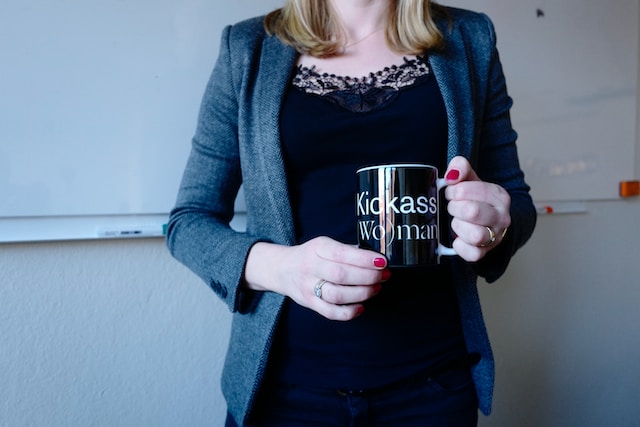Sometimes it’s so easy to fall into negativity that we forget how much energy it saps from us. That’s why we started InPower Women, to help restart the dialog about women, leadership and power. That’s also why we love this post for female leaders by Kelsey, who reminds us that when we use powerless language to describe ourselves (personally or generally), we sap our own energy to “be the change.” -InPower Editors
I am exhausted by the stream of content pointing out the lack of women in leadership roles. This might be surprising, considering I went to a high school that carried the motto “Empowering Women.” My closest friends frequently call me a feminist, and the men in my office know not to refer to the women on our team as “girls” or they’ll incur the wrath of my evil eye. I currently run a growing company made up of dozens of talented men and even more women.
I’m not trying to ignore the facts. I know that women are still extremely underrepresented in leadership roles in industries ranging from finance to academia. I am also not oblivious to my own experiences with sexism. But I believe the best way to change the status quo is to focus on the opportunities, not the barriers.
Articles that stress the lack of women in leadership roles don’t empower young female leaders. And the comments sections emphasize this by digressing into accounts of sexism experienced in the workplace.
This type of content is unproductive for a few reasons:
1) Young women enter the workforce with predefined barriers; they assume they’ll experience sexism before it even happens. This can cause unnecessary stress and tension.
2) Young women assume they’ll have to work twice as hard to accomplish the same as their male counterparts, which can be demotivating and discouraging rather than challenging.
3) The articles and comments scare young women instead of empowering and encouraging them.
I — and many of the women I work with — prefer a more positive approach. Our problem with the portrayal of women in leadership exists partly because we are part of the Millennial Generation, and things are actually looking up for our group. According to Pew Research, women workers between 25 and 32 years old make 93 percent of men’s earnings. When compared to the average of women of all ages making 84 percent of men’s earnings, that 93 percent figure is a step in the right direction. A positive framing of the situation will lead to more encouraged women and more equality.
I am not arguing to stop writing content about the issues we face with the lack of women in leadership positions; I’m saying we need to reframe the conversation. Content can help the cause. By promoting articles that encourage and empower women, like this one from Georgia Nugent, we can change the way young women perceive the workforce and their futures. The entire piece is worth a read, but this quote encompasses the tone that inspires me as a young female leader: “I believe the best way to deal with such issues, and to help more women get ahead, is not to focus on the barriers, or to get stuck by feeling downtrodden or oppressed. A sense of humor, a strong spine and a supportive network can take you much further.”
I’m asking the women who have many years of experiences — good and bad — to show me the positive side of their interactions with men in the workplace. I am a female leader from the Millennial Generation, and I have not yet been jaded. Don’t discourage me.
Kelsey Meyer is Cofounder and President of Influence & Co., one of the leading providers of high quality expert content to the world’s top publications. She is also Co-creator of Contributor Weekly, a weekly newsletter for contributors, keeping them up-to-date on tips and trends for writing, publishing and sharing their content.
Originally on: LinkedIn
Join Our Women’s Mastermind
Mar 19 – Is the era of “good leadership” over?
Apr 16 – Psychological Safety and Gendered Competition
May 16 – TBD by the group







